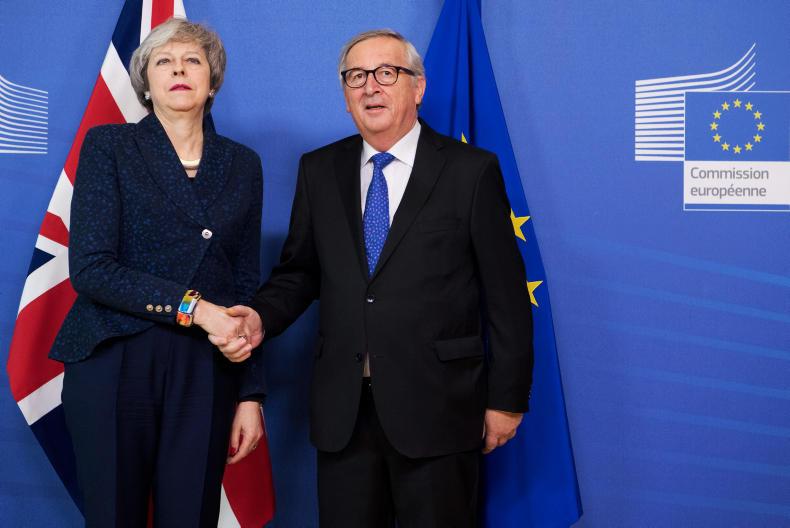The comments by UK farmers leader Minette Batters (president of the National Farmers Union (NFU)) that Brexit was “like disease crisis management” signifies a growing realisation among UK farmers that a no-deal Brexit will be a disaster.
Chatting with farmers at the NFU Scotland AGM and dinner this week, the mood was similar, with apprehension growing.
In Ireland, there has been realisation since the beginning of just how serious an issue Brexit is for selling agricultural produce to our main market, never mind the internal trade on the island of Ireland.
Yet with the countdown entering its final stages, there is little evidence of any significant preparation for a huge chance to the status quo, particularly on trade in advance of 29 March. At this point, an extension looks essential, even if it is to prepare properly for a no-deal situation.
Labour party move
At a political level, there does appear some movement in thinking. While the formal withdrawal agreement seems set in stone, Brussels is making considerable noise about what could be done in the political attachment which scopes out possibilities for future trading arrangements.
Within the UK, the opposition Labour party has given its clearest indication yet that it might move to work with the Government on a deal around the UK staying aligned with the EU on customs.
What is becoming ever clearer is that advocates for a no-deal Brexit are diminishing as we get closer to the departure day. There are no big trade deals ready to be signed in the first week of April.
In fact, the most recent trade developments provide an ironic twist to UK ambitions on trade outside the EU. The EU-Japan free trade deal is in place just a week at this stage and it is only now that many are realising how it will change from being a positive to a negative for the UK overnight on 29 March.
Car industry
Where it will be felt most in Britain is in the car industry. While WTO tariffs on cars are at 8% – more manageable than on agricultural products – in a no-deal Brexit it will still have a huge impact on the British car industry.
Currently Britain exports tariff-free to the EU and is the EU base for the Japanese motor giants of Toyota, Nissan and Honda. From 30 March these brands producing in the UK and selling to the EU would be subject to the tariff.
At the same time, cars supplied from their production facilities in Japan can now enter the EU tariff-free, in effect a double blow for the British car industry.
At a stroke, the issue of the backstop would cease to be relevant
Of course Brexit also hits EU car manufacturers selling into the UK and Germany is the most impacted member state as the auto industry makes up a huge chunk of Germany’s share of the EU27’s trade with the UK.
Common customs agreement?
If sufficient common ground can be found in the UK Parliament between the main parties around staying aligned on a customs arrangement with the EU, then it would be a major breakthrough. At a stroke, the issue of the backstop would cease to be relevant as both the UK and Ireland along with the other 26EU member states would be part of the same customs area and we could forget about WTO tariffs or the UK unilaterally slashing tariffs on imported agricultural produce.
If that happens, then farmers on the island of Ireland and Britain can continue with business close to normal, leaving just the standards issue to be dealt with. The UK commitment to stay aligned to the EU on standards for agriculture shows that there are possibilities in this area as well but for now, getting a customs deal would break the tension.






 This is a subscriber-only article
This is a subscriber-only article










SHARING OPTIONS: